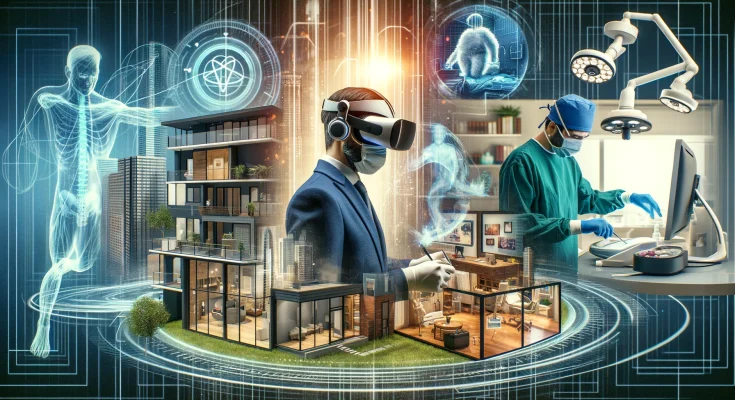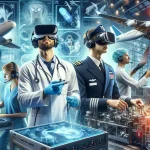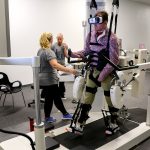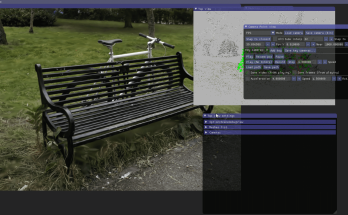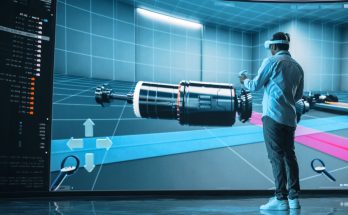Virtual reality (VR) technology has evolved beyond its roots in sci-fi and gaming to become a transformative force across various traditional industries. From revolutionizing real estate marketing to enhancing healthcare training and reshaping the retail experience, VR’s capacity to simulate realistic scenarios and immersive experiences is changing the business landscape. Let’s explore how VR is impacting these sectors, dive into specific use cases, and discuss the challenges of integrating this technology into everyday business practices.
Real Estate: A New Era of Property Marketing and Sales
In the realm of real estate, VR is making waves by transforming how properties are marketed and sold. Real estate agents are now using VR tours to allow potential buyers to explore properties remotely from anywhere in the world. This not only saves time but also expands the market reach of listings, enabling international buyers to make informed decisions without needing to travel. For instance, high-end properties are often showcased in VR, giving a comprehensive preview of the layout and finishes, which is invaluable for properties still under construction.
Additionally, VR enables virtual staging of homes, where buyers can experiment with different design aesthetics within a property. This can enhance the property’s appeal and potentially lead to quicker sales at higher prices.
Healthcare: Boosting Training and Enhancing Patient Care
The impact of VR in healthcare is significant, especially in surgical training, patient rehabilitation, and therapy. Surgeons utilize VR simulations to practice complex procedures in a risk-free setting, which improves their skills without the costs or ethical concerns of traditional training. Platforms like Osso VR, for instance, offer orthopedic surgeons the chance to operate on virtual patients, enhancing their accuracy and reducing errors in real surgeries.
In rehabilitation, VR helps create engaging environments for stroke victims and those with mobility issues, promoting activities that improve movement and speed up recovery. VR is also being explored in pain management, where immersive experiences help distract patients from pain, reducing reliance on pain medication.
Retail: Transforming the Online Shopping Experience
In retail, VR is revolutionizing how we shop online. Virtual stores allow customers to browse products as though they were in an actual store, examining details and envisaging products in a real-world context. Furniture retailers, for example, are using VR to enable customers to visualize how a piece of furniture would look and fit in their own homes before purchasing.
VR not only makes shopping more interactive and enjoyable but also helps businesses stand out in a competitive market by enhancing customer engagement and satisfaction.
Industry Challenges: Integrating VR
Despite its advantages, incorporating VR into traditional industries comes with challenges. The cost of VR equipment and the development of bespoke virtual content can be prohibitive, especially for smaller businesses. Additionally, there is a need for technical expertise to manage VR systems and for staff training to maximize the benefits of this technology.
The digital divide also poses a problem, as not all customers own VR headsets or are comfortable using them, potentially limiting the reach of VR initiatives. To mitigate these issues, some sectors are adopting phased or mixed-reality approaches that require less investment, or are turning to mobile VR solutions, which are more accessible to a wider audience.
The Future of VR in Traditional Industries
As VR technology continues to advance, its potential to reshape traditional industries grows. Offering immersive and interactive experiences, VR not only enhances business operations but also boosts customer engagement and satisfaction across various sectors. Despite existing challenges, the momentum towards VR integration appears unstoppable, promising a future where virtual interactions are integral to business practices. As we navigate these changes, the traditional industry landscape is set to evolve, driven by the innovative possibilities that VR brings to the table.

